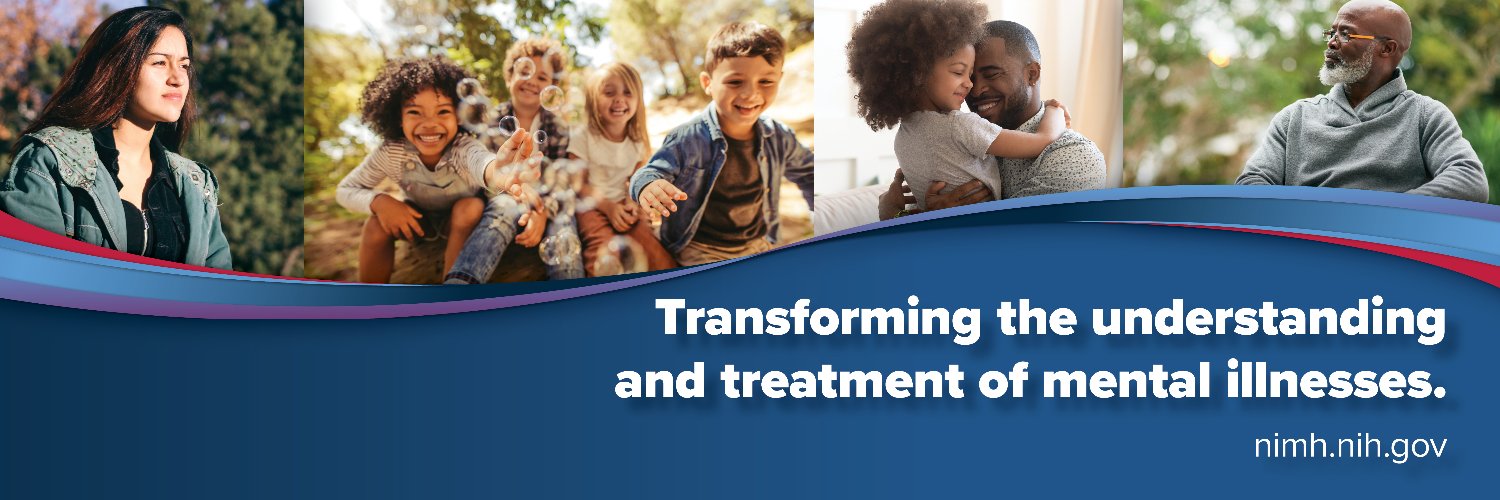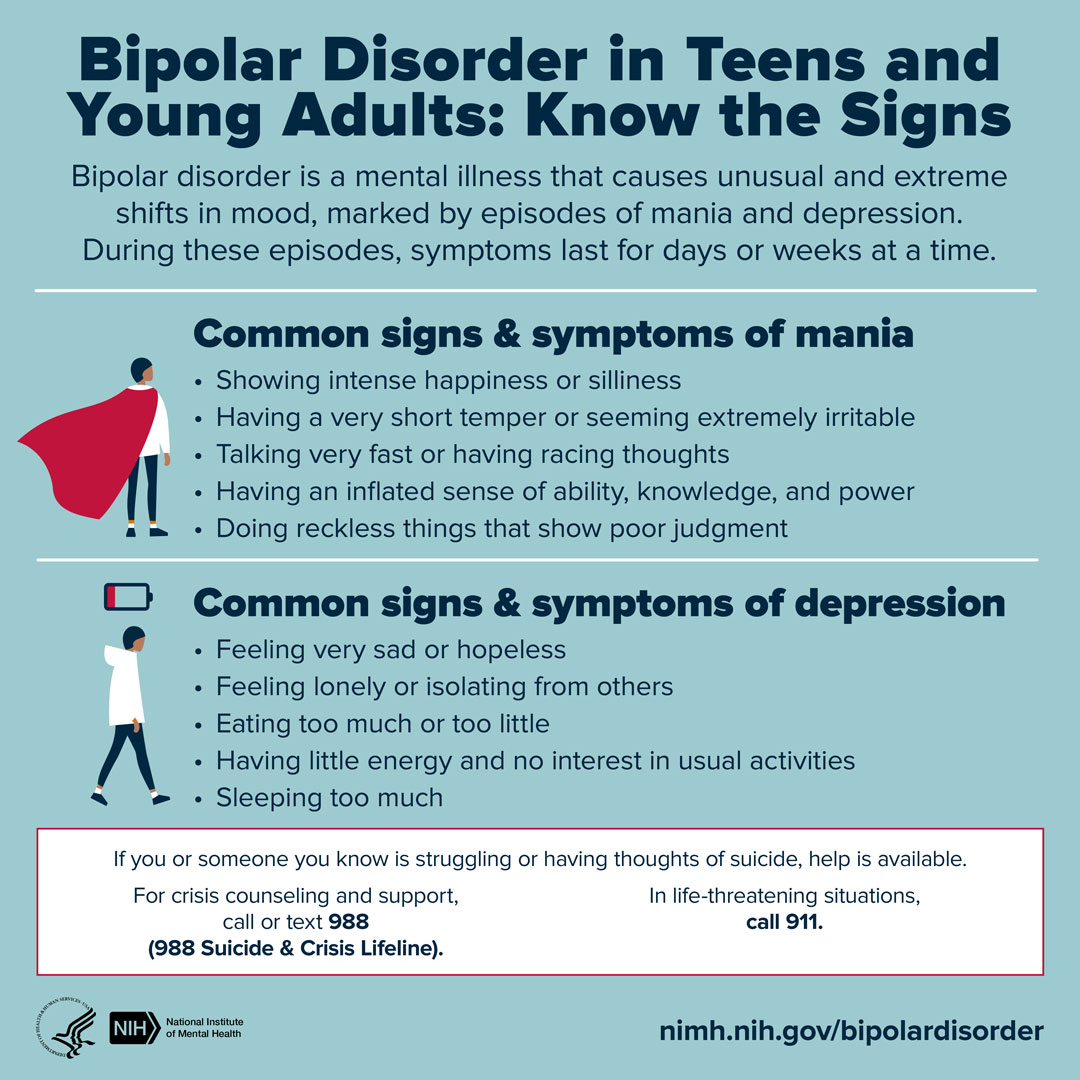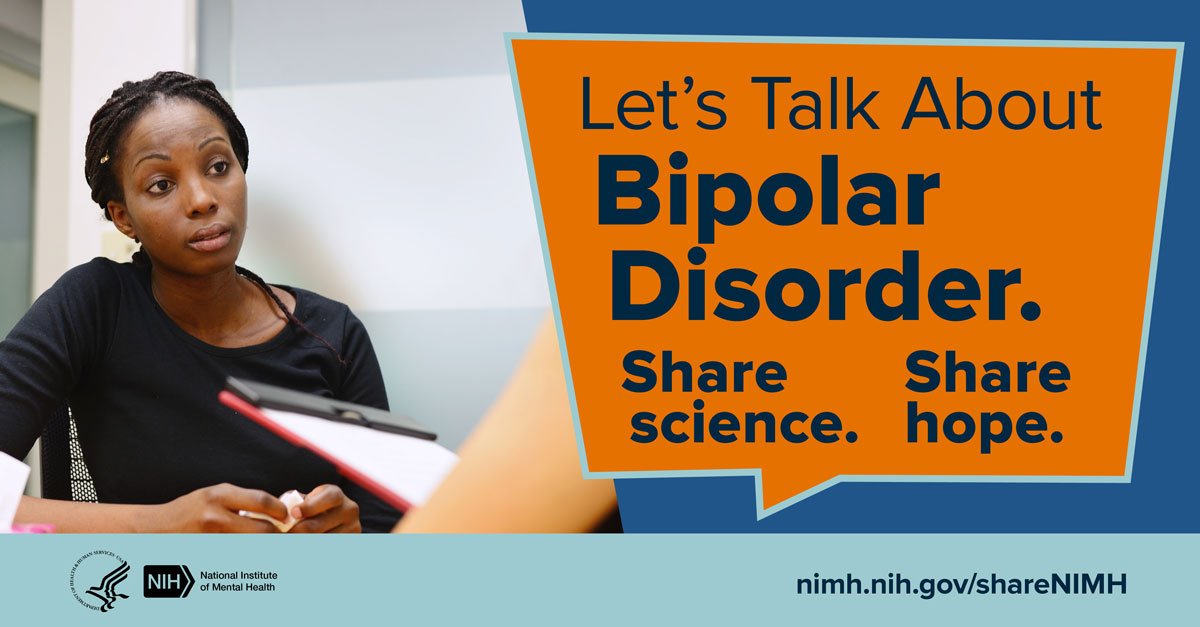
National Institute of Mental Health (NIMH)
@NIMHgov
The lead federal agency for research on mental disorders. Engagement ≠ endorsement. Privacy Policy: https://go.nih.gov/0xHOUTr
People with bipolar disorder experience periods of unusually intense emotion, changes in sleep patterns and activity levels, and unusual behaviors. Learn more about bipolar disorder: go.nih.gov/oZarucJ. #WorldBipolarDay

NIH researchers developed a new PET radiotracer that, for the first time, reveals a key inflammation biomarker in the human brain. 🧠 NIMH's Dr. Robert Innis says it could reshape how we diagnose & treat Alzheimer’s, MS & more. snmmi.org/Web/News/Artic…
Bipolar disorder is not the same as the typical ups and downs kids go through. The mood swings are more extreme and accompanied by changes in sleep, energy level, and the ability to think clearly. Know the signs and symptoms. go.nih.gov/PdKzvaX #WorldBipolarDay

In recognition of #WorldBipolarDay on March 30, help raise awareness about bipolar disorder by sharing NIMH's informational materials based on the latest research. Share science. Share hope. #shareNIMH go.nih.gov/JzsKoUE

An @NIH-funded study found new suicide risk prediction models were 18% more accurate than current prediction methods—offering hope for prevention. Learn more: go.nih.gov/10hAMqO

📅 On April 23, NIH will host a virtual workshop to advance our understanding of the brain's reasoning algorithms, explore how brain disorders may impact these processes, & discuss whether computational models of reasoning can inspire new interventions. go.nih.gov/qWPReoL

A recent @NIH-funded study is shedding new light on memory encoding. Read about how researchers examined memory traces in the hippocampus of mice and what physical changes they discovered on a cellular level. go.nih.gov/D2iixgI

Happy first day of spring! As we welcome the spring equinox, it’s a great time to check in with your mental health and daily routines. Here are some tips from NIMH to help you take care of your mental health: nimh.nih.gov/mymentalhealth.

NIH researchers developed a powerful method to track how brain-behavior relationships evolve, revealing insights that standard analyses miss. This could reshape how we study neural activity in psychiatric disorders and addiction. elifesciences.org/articles/95802
Researchers created an #ArtificialIntelligence model that accurately predicted adolescents at high risk for mental illness in the near future, with sleep disturbances as one key predictor. This new @NatureMedicine study — supported by #NIH — highlights the potential for AI to…
National Drug and Alcohol Facts Week® (March 17-23) educates youth on the science of substance use and addiction. Learn about the complex relationship between substance use and mental disorders—treatment is possible. 🔗 go.nih.gov/6yUInT2 #NDAFW

Don’t miss the opportunity to join the conversation and help prevent substance use among youth in your community. Learn more and register for #NDAFW March 17-23, 2025: go.nih.gov/3GOndZk
Our brains are an incredible and complex organ! Watch this video to learn more about the different parts of the brain and what each area helps control. go.nih.gov/Trj1C6C. #BrainAwarenessWeek #BrainWeek

Watch our fun and educational video series, Jane the Brain! Jane helps kids understand different emotions and offers advice! Join Jane as she learns through her experiences and explores ways to cope. go.nih.gov/51Anc5X. #BrainAwarenessWeek

Did you know that connecting with friends and family is one great way to cope with stress? Download our free coloring and activity book to help kids learn simple ways to boost their mental well-being. go.nih.gov/qQCb6z3. #BrainWeek #BrainAwarenessWeek

Introduce kids to the exciting world of mental health research with our free coloring and activity book! Kids can learn about mental health and clinical trials and even conduct their own experiments! go.nih.gov/EOvJNFH. #BrainWeek #BrainAwarenessWeek

Did you know that big and important changes are happening in the brain during adolescence? Here are 7 things you should know about the teen brain. go.nih.gov/RX9jOqg. #BrainWeek #BrainAwarenessWeek

It's #BrainAwarenessWeek! Share NIMH resources to help educate the public about the impact of brain science on our everyday lives and inspire the next generation of scientists! go.nih.gov/m3To6tF. #BrainWeek

🧬An NIMH-funded global study reveals new insights into the genetic contributors to bipolar disorder, including differences between disorder subtypes and links to other mental disorders. These insights could pave the way for new treatments. Read more: go.nih.gov/9vr1w1C.

Our thoughts and behaviors come from billions of interconnected neurons—but how do they work together? A new study led by NIMH researchers maps how thousands of neurons influence a single one, a key step in linking brain activity to behavior.
Nature research paper: Brain-wide presynaptic networks of functionally distinct cortical neurons go.nature.com/3EYvRyo